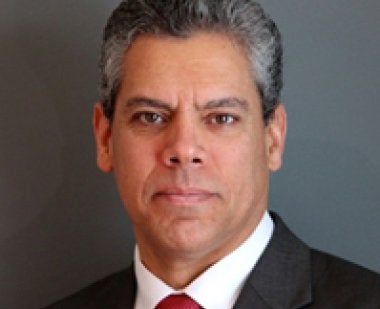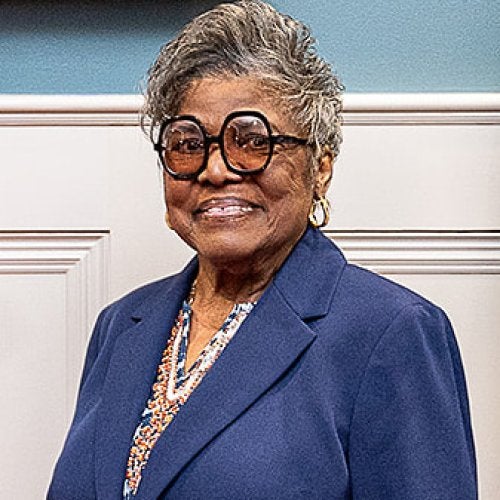
Did you know that a survey conducted earlier this year by the National Science Foundation found that one in four respondents were unaware that the Earth revolves around the Sun? Or that during the height of the Iraq War, the National Geographic Society found that 63% of young Americans could not locate Iraq on a map of the Middle East? Earlier this year, soon after Russian troops entered the Crimean peninsula, only 16 percent of Americans were able to locate Ukraine on a map — here, the implications go well beyond knowledge of geography: the survey also found that the respondents who were most likely to endorse U.S. military intervention were also more likely to guess that Ukraine was farther away from its actual location. It gets worse. Health officials have become increasingly concerned about new outbreaks of measles and whooping cough, which through 2008 were virtually nonexistent in the U.S. — a re-emergence of preventable diseases that has been attributed to the percentage of parents that do not vaccinate their children due to unfounded fears. Finally, only a few weeks ago, a report released by the Pentagon described climate change as a significant threat to national security, yet fully one in five Americans still believe that climate change does not exist despite overwhelming scientific evidence that climate change is actually accelerating and that human activities are a central cause.
These are some of the most important difficult dialogues of our time a faltering educational system, global conflicts perceived through the lens of ignorance and misinformation, public health crises fueled by hysteria rather than science, and time running out for climate change action before widespread and devastating repercussions occur. The consequences seem staggering. For many years, the United States has lagged behind other developed nations in science, math, and reading. Despite efforts to increase participation in science, technology, engineering, and mathematics, interest in STEM fields among young people in the U.S. is actually on the decline.
An even greater challenge for educational institutions is that many scientific issues have become fodder for debates based on political ideology. For example, the Texas State Board of Education has come under critical scrutiny in recent years for diminishing science-based evolutionary biology and downplaying human causes of climate change in new revisions of science textbooks. The problem of political ideology in public education is highlighted by longitudinal data from Pew Research indicating a widening chasm of political polarization between political parties in the U.S. — so much so that 27% of Democrats and 36% of Republicans see the other party as “a threat to the very well-being of the nation.” Incivility has come to characterize much of our national conversation, and this is no less true for students at colleges and universities, where rising campus tensions inside and outside the classroom provide evidence of the increasingly hostile nature of public discourse within our democracy.
In 2005, the Ford Foundation and a group of distinguished current and past Presidents and Chancellors called for the need to cultivate civility and to address these “difficult dialogues.” Since then, a number of colleges and universities across the nation have developed projects, training sessions, courses, and workshops for students, faculty, and staff to have difficult conversations in productive ways. These campus communities have had success “talking across difference” about controversial topics. One outcome of this initiative was the formation of the private, non-profit Difficult Dialogues National Resource Center (DDNRC). The mission of the DDNRC is to advance innovative practices in higher education that promote respectful, transformative dialogue on controversial topics and complex social issues, thereby reflecting a commitment to pluralism and academic freedom and strengthening a democratically engaged society. The DDNRC seeks to foster constructive dialogue about some of society’s most contentious issues and social policies, including race, religion, sexual orientation, disability, immigration, sexual violence, social class, the environment, and war and conflicts. The overarching goal is to form a consortium of higher education institutions and national associations committed to the advancement of difficult dialogues teaching and learning. Ultimately, the DDNRC hopes to become an intellectual and operational nucleus of a national movement for difficult dialogues teaching and learning.
The dialogues we seek to promote are “difficult” because people often have specific, unspoken agendas or perspectives they want to promote and often fail to appropriately pursue dialogue that meaningfully promotes understanding of differing points of view. Generally, dialogue refers to efforts people make to talk with and listen to one another in open and honest ways about ideas or problems that often result in an empathic airing of differences with the potential to lead toward mutual understanding and collaborative decision-making. Difficult dialogues are planned, purposeful educational interactions about complex social and moral dilemmas or controversies between individuals with divergent attitudes, beliefs, values, backgrounds, perspectives, and/or worldviews. The central intention is to create mutual respect, open-mindedness, and cooperation. Thus, “civility” is characterized by respect (rather than politeness), and “incivility” is characterized by actions that are intended to disrupt or diminish the quality of the interactions or outcomes for an individual or the group, including the intentional use of misinformation.
The discovery of new knowledge and the resolution of social problems vitally depend on critical thinking, effective communication, the most stringent pursuit and expression of truth, and collaboration among those with differing cultural and ideological perspectives. More than ever, the nation is in critical need of tools and capacities for engaging with differences in a constructive, healthy, and civil manner. Yet our world continues to be polarized in many ways. When veracity and open inquiry succumb to polemics and demagoguery, the very foundation of democracy is threatened. We cannot afford for the university to become a political battleground akin to the halls of government, talk radio, reality television, Internet blogs, or cable news television. Deep, searching, and civil dialogues are essential features of vibrant academic communities. Higher education institutions have a major responsibility for preparing students and leaders equipped to tackle the major problems of our time. A system of higher education characterized by difficult dialogues teaching and learning has the potential to reduce the deleterious influences of extremist political ideologies while simultaneously strengthening our democracy for the benefit of future generations.
Professor Roger Worthington is the new chair of the Department of Counseling, Higher Education and Special Education. A licensed psychologist and a Fellow of the American Psychological Association, Dr. Worthington pursues research on diversity in higher education, multicultural counseling competencies, sexual identity development, and difficult dialogues teaching and learning. He is the editor of the Journal of Diversity in Higher Education and chairs the board of directors for the emerging Difficult Dialogues National Resource Center.



